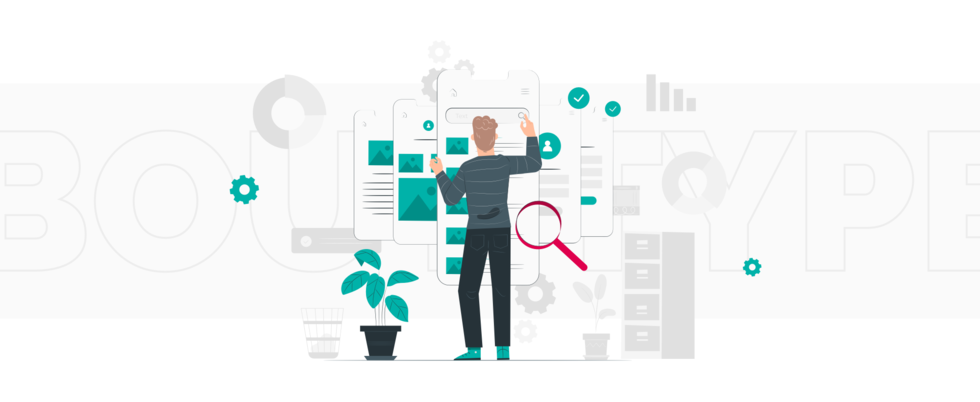What is Test Automation: Definition, Types, Advantages & More

Content Marketing Manager at TechMagic. Mainly focused on content marketing, SEO optimization, and media relations.

Eager to learn more about test automation? Check why test automation is important for a startup and what financial benefits it brings to your business.
Testing a software product before release is a mandatory stage for every software development company. It’s an essential part of work that guarantees the quality of a program.
In this post, we’ll analyze the main reasons why automation testing is necessary for your startup. After reading this article, you’ll see the fundamental benefits of automation testing and understand that with the increased pace of technology, it takes more time for companies to manage their web app quality manually. Get comfortable and have a look!
What Is Test Automation?

Let’s begin with the basics. It’s the practice of running software tests automatically to check for bugs, various tech issues and enhance software quality. In other words, it’s a quality assurance measure that pursues only one goal — to make sure your app is ready for deployment. Automation testing saves time, money, and effort.
The software development process includes a few successive development cycles that simply can’t be done without repetitive executions of the same tests. And this is where test automation for startups can tackle that challenge and speed up the process.
Overview of the Main Types of Automated Testing
Since the inception of automated testing, an extensive set of testing types have been developed. Let’s take a deeper look at the main types of test automation services and analyze where they can be used.

Unit Testing
The main goal of unit testing is to automate and speed up the unit test suite. Unit tests are meant for checking separate units in isolation. Such tests aren’t contingent on file storage, databases, and external APIs. Their main goal is to test the code; this is where external dependencies aren’t checked.
Functional Testing
It’s a type of black-box testing that checks the software system against the functional specifications. The overriding purpose of functional tests is to check up absolutely each function of the app. This type of testing is usually focused on checking APIs, user interfaces, client/server communication, and security.
Regression Testing
It’s a mix of functional and non-functional tests that pursue one objective — to check if the software product is regressed after a change.
Smoke Testing
A type of functional test that checks the most important features of a software product to make sure that all services are up and running. In other words, a smoke test is an element of automated deployment.
Black Box Testing
The primary objective of black-box testing is to check the general functionality of software without peering into its internal structures. Black box testing usually finds bugs in the following aspects:
- Behavior errors;
- Incorrect functions;
- Interface bugs;
- Startup bugs.
Integration Testing
The fundamental goal of a QA engineer is to check if two or more systems can properly work together. In other words, it's software testing where individual units/components are combined and tested as a group to find out if they guarantee smooth operation between each other.
What Are the Key Benefits of Automation Testing?

In fact, automation testing is the main trend for the next couple of years. Currently, it’s one of the best and most effective ways to improve the coverage of the testing process. It can surely boost execution cycles, reduce human efforts, and provide immediate feedback.
What are the advantages of automation testing? Let’s dive into the fundamental advantages of automation testing in greater detail:
#1 Reduce the Feedback Cycle
Gathering feedback on new features takes a lot of time. However, time is money, and that’s why automation testing is needed to get the ball rolling. It makes the feedback cycle faster and allows programmers to detect bugs at the early development phase.
#2 Better Test Coverage
The thing is that manual testing takes time and imposes limits; testers can verify only a limited number of tests. When automated testing is used, it allows QA experts to save time and enhance test coverage for your software product.
#3 Reusability of Test Suite
To check the software product, a QA engineer needs to build an automated test suit. And these test suits can easily be reused for other cases. Simply put, you can replicate this suite and use it for your next project (if necessary).
#4 Reduced Business Expenses
It goes without saying that it takes time and money to set up automated testing. However, when your scripts are ready, you only need to have a few QA engineers to control the execution of such test cases. As a result, the quality of work will be much better, and business expenses will be reduced.
#5 Better Insights
Automated testing provides a software development team with information about data tables, memory contents, and other stats necessary for the app performance. This allows programmers to find out what goes wrong and at what stage.
#6 Quickly Check the Stability of Your Build
It’s one of the biggest automation advantages in software testing. A few years ago, programmers used smoke tests to analyze the stability validation of a software product. However, this approach takes a lot of time as it requires only manual input. But when it is automated, this enables software programmers to check the stability of their build.
#7 Reduce Cost (Of Failure)
Of course, it takes time and money to create automated tests. But in this case, we can’t look at the financial aspect of a program. You need to analyze the cost of failure. When software bugs aren’t identified, and the software escapes into production, a client will lose customers and money. Automated tests can help avoid this as they can find bugs in the initial phase.
#8 Accuracy and Reliability
Automated tests are more accurate and reliable as there’s no need to perform the same steps every time. On the plus side, the results will be available immediately to each member of the team.
#9 Increased Confidence
Agile methodologies suggest using short cycles of feature development that are called sprints. They run for 2-3 weeks. However, within a bigger release cycle, sprints are usually repeated. It is tough to test all these features again and again manually. And this is where the use of automated testing might come in handy.
# 10 Measure Quality Metrics
Tools used for automated testing usually offer a set of features for measuring code quality metrics. They are as follows:
- Code semantics monitoring;
- Code coverage;
- Technical debt, etc.
This allows programmers to be more effective as they can check a huge codebase in a few clicks.
Final Thoughts

Well, why do we use automation testing for startups? So far, we can see that automated testing is a superb solution that allows business owners to save a lot of time, money, and effort. Besides, automated testing also allows QA experts to examine the system inside out. And this ensures that your software is of excellent quality. Remember that if you are building an IT product, you simply can’t do without test automation services. Don’t hesitate to contact experts from TechMagic if you need professional and timely assistance. Our team of web developers, designers, and QA experts can help bring to life your ideas. We combine manual and automated testing in all of our projects to provide our clients with high-quality solutions and top-notch results. If you have some questions seeking clarification, feel free to drop us a line!



 Software Development
Software Development
 Security Services
Security Services
 Cloud Services
Cloud Services
 Other Services
Other Services
















 TechMagic Academy
TechMagic Academy
 linkedin
linkedin
 facebook
facebook
 twitter
twitter






















